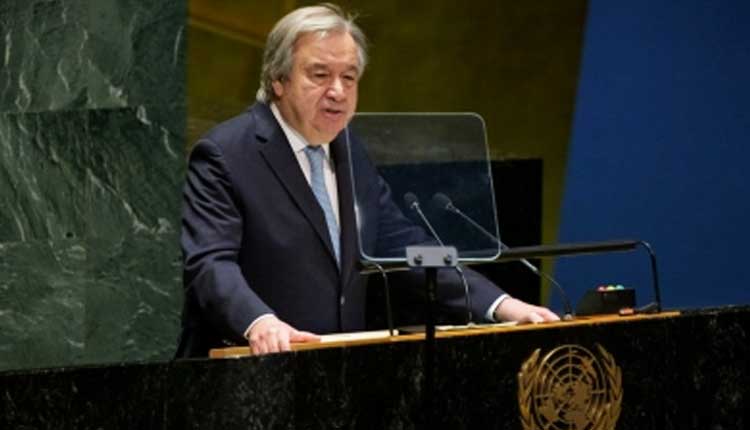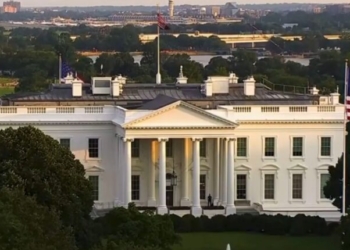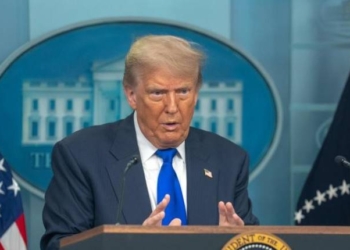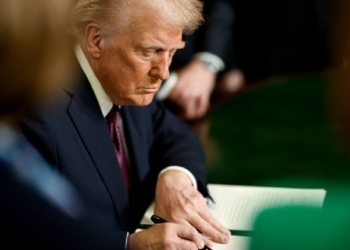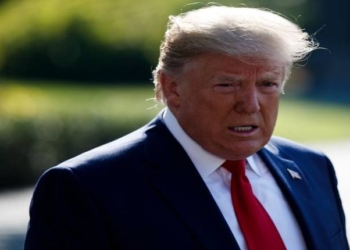New Delhi: The Bonn climate talks just closed with widespread disappointment at the slow pace of progress in the past two weeks, rich counties failed to deliver promised and required assistance to poor and the UN Secretary-General Antonio Guterres, is right when he sums up the current situation: “Yet the collective response remains pitiful.”
The negotiations, which brought together more than 4,800 participants from all corners of the world, almost double the number of participants that attended last year’s conference, were seen as a key mid-year moment and set the tone for the 2023 UN Climate Change Conference (COP28) that will convene from November 30 to December 12 in Dubai where the first global stocktake of the implementation of the Paris Agreement will conclude.
Each stocktake is a two-year process that happens every five years, with the aim of assessing the world’s collective progress towards achieving its climate goals.
Climate negotiators told IANS on Friday that the decisions were not made in Bonn as it was an opportunity to set the agenda for COPs and indicate country positions.
Responding to the outcome, R.R. Rashmi, Distinguished Fellow, TERI, told IANS: “Bonn climate talks this year have exposed the real fault lines in the climate change negotiations. Climate finance is an issue that the developed countries do not want to face. They think that they have done enough by agreeing notionally to the loss and damage fund. Instead, they want to focus on a mitigation work programme which does not bode well for the future of global stocktake.”
Echoing similar concerns, Harjeet Singh, head of global political strategy at Climate Action Network International, said the Bonn climate conference laid bare the glaring hypocrisy of wealthy nations, showcasing a remarkable indifference to the struggles of developing countries.
“Let’s be clear: without honouring their financial pledges, directly tied to their historical role in driving the climate crisis, these affluent nations lack the moral authority to exert pressure on poorer countries,” Singh added.
Fourteen years on and the $100 billion climate fund proposed has yet to be implemented. Developing countries had scaled up talks on the climate fund at the Bonn conference because they were tired of the false promises.
Besides finance, the global stocktake, adaptation and loss and damage were on the agenda. COP28 President Sultan Al Jaber’s visit to Bonn last week took place amidst ongoing scrutiny over his role as both COP President and CEO of national oil company ADNOC.
During a speech to heads of delegation, Sultan Al Jaber explicitly mentioned the need to aphase down’ all fossil fuels.
However, negotiators say, Al Jaber failed to outline a timeline or a plan with some saying this was a missed opportunity for the Presidency to set out its vision for COP28 and set some expectations for what will be accomplished in Dubai.
The political phase of the global stocktake started at Bonn but discussions became gridlocked around structure and process. “Parties will decide at COP28 what the political outcome of the global stocktake should be,” remarked a negotiator.
On the issue of Loss and Damage Fund, a decision on the host of the Santiago Network was expected but did not materialise. Innovative sources of finance were an area of discussion with Greenpeace calling for rich governments to tax fossil fuel company profits to fund loss and damage.
“If rich countries want to be taken seriously they need to ensure their funding of the Loss and Damage Fund is done far more quickly. The avenues for raising their contribution to the fund are numerous, from taxing the war profits of the fossil fuel companies to a frequent flier levy or wealth taxes,” Christian Aid’s Global Advocacy Lead, Mariana Paoli, told IANS.
Describing the talks “cheap”, Paoli said despite COP28 taking place in one of the biggest oil producing countries in the world, “if we get proper finance commitments, there’s a chance that we get a historic deal which ushers in the transition to a phase out of all fossil fuels and a tripling of renewable energy by 2030”.
Campaigners used Bonn to call for a fossil fuel phase out deal at COP28. Youth climate activists such as Eric Njuguna and Greta Thunberg said keeping to 1.5 degrees Celsius was only possible with a fossil fuel phase out deal and the ramping up of renewables.
The Eastern Group failed to agree and recommend a host for COP29 in 2024 so the location remains unclear. This deadlock stems from geopolitical tensions within the group of the Russia war and Azerbaijan-Armenia conflict.
The decision will now be made at COP28 in Dubai. If the stalemate continues then the event could default to Bonn, say negotiators.
At the conclusion of talks, UN Climate Change Executive Secretary Simon Stiell said the Bonn Climate Change Conference closed on Thursday after two weeks of intense work that made progress on several critical issues, helping lay the groundwork for the political decisions required at the COP28.
“Having taken nearly two weeks to agree an agenda, it is easy to believe we are far apart on many issues, but from what I have seen and heard, there are bridges that can be built to realize the common ground we know exists,” he said.
“World-changing agreements happen when negotiators rise to the occasion, reach out and find compromises, then manage to convince their capitals of the merit and necessity of those compromises.”
At the meeting, progress was made on issues of critical importance, including the global stocktake, climate finance, loss and damage, and adaptation, among many others.
Stiell singled out the global stocktake, which will conclude at COP28, as a moment to course correct to get the world on track to limiting the temperature rise in line with the Paris Agreement.
Delegates at the Bonn conference wrapped up the last meeting of the technical dialogue of the first global stocktake — laying the ground for more ambitious climate action.
Indigenous peoples, local communities, businesses, cities and civil society, including youth and children, spoke at the Bonn conference about how they are addressing climate change and highlighted challenges that need to be overcome.
(IANS)




